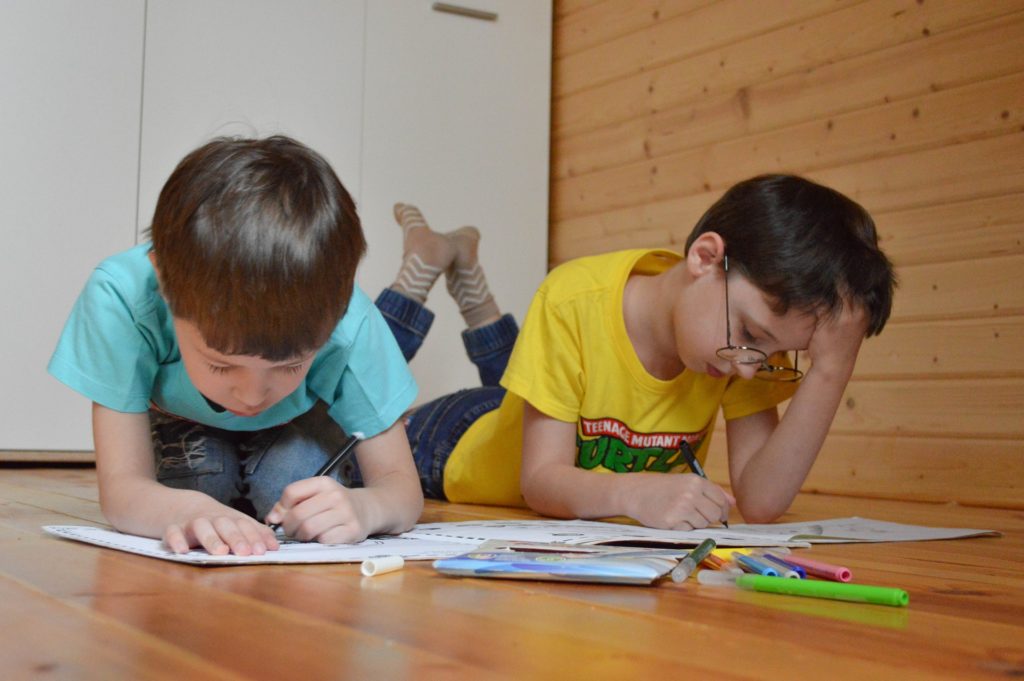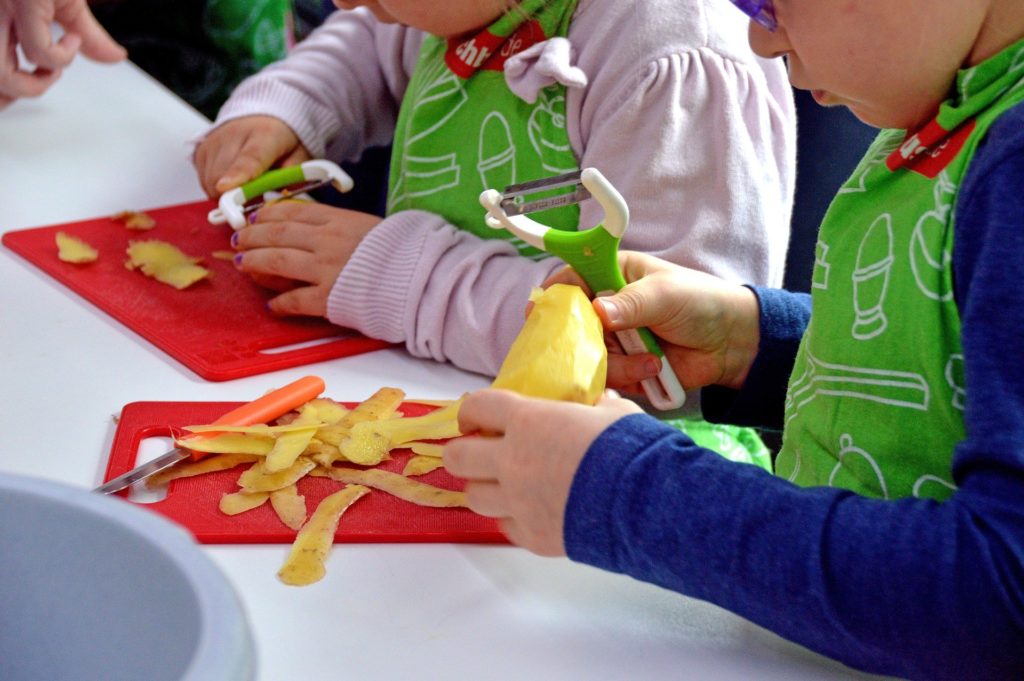A recent report indicates that if school districts were to re-open today, only 36% of parents would confidently send their child back to school. I get it! With so much about Covid-19 still unknown, everyone is just trying to do their best to keep their family healthy.
Many families are considering homeschooling as an option. When planning for a year of schooling at home, thoughts can quickly lead to selection of curriculum and other academic concerns. But just as a solid foundation is necessary to build a house with structural integrity, so are there essential practices that need to be considered when planning for schooling at home. This article will dig into specific skills that will be helpful in supporting a successful homeschool experience.

None of these skills are “always/never”. Child raising is a complex mix of personalities, experiences, and family history and everything occurs along a spectrum. Please don’t use this list as a tool for self-condemnation, but as a tool to guide self-reflection and strength analysis. I suggest making no quick changes; instead, over the course of the next few weeks you should become aware of these situations and make note of how you are currently handling them. Let’s get started:
Skill One: Setting Limits
One aspect of setting limits is being asked to do something that is not currently a personal priority. How many times have you as an adult been asked by a spouse to do a task when you are right in the middle of doing something else? Maybe you are relaxing on the couch watching Jeopardy, and you are asked for help in getting the trash out. Now, I am perfectly happy to help with taking care of the household, but this is not good timing! Why are you interrupting me?

Most of childhood is like this; the priorities of youth are almost never aligned to the needs of the household or the good of the many. Here are some requests that you might make of your child:
- It’s time to leave the park now, I need to get started on dinner.
- Please pick up your toys, Grandma is coming and we don’t want her to trip.
- Screen time is over buddy, time to go outside and play.
Considering the sheer number of hours that you will be spending at home together, the school work you will be supporting, and the many transitions you will have between activities, homeschooling creates a situation where you will be making many more requests of your child. It is important to look at what dynamic you and your child currently have in place. Ask yourself:
- How many times do you have to ask your child to do a task?
- What communication skills do they use to defer or rebut requests?
- What steps do you take when the request is not met?
Don’t make any changes this week, just make a mental note and begin to understand where you are in this practice.
Setting Limits Part 2: Saying NO
Another aspect of setting limits is saying ‘NO’ to your child. Again, I am a huge proponent of saying ‘YES!’ as much as possible. I sincerely want life to be all about beautiful relationships and joyful explorations of the world. But ‘NO’ is a completely natural part of life that has to exist so that the other aspects can flourish. How would your child respond to the following?
- No, I’m sorry you cannot have that toy. We are shopping for groceries today.
- No, now is not cookie time but you can have some carrots instead.
- No, we are not playing with the Ipad now. You can play Legos or draw.

Again, just watch yourself and your interactions with your child over the next week. Examine your ‘NO’ statements. Do you avoid saying it because you know your child will have a negative response? Do you say it, and then often find yourself conceding to whining or tears? Do you blame your ‘NO’ response on another person? Being aware of your habits is the first step in this process.
Homeschooling can feel a bit like working from home; the boundaries are blurred. In some ways, it is amazing! You can check your email while sitting on the patio. You can attend a meeting while wearing shorts! But in other ways it can be extremely challenging; it takes tremendous discipline to stay on task, to transition between activities, and to know when you are ‘done’. This is why it will be so important to be able to support your child by setting and following through with limits.
Skill Two: Encouraging Independence
From my work in the classroom, it is my observation that families have vastly different ideas about the value of encouraging independence. In many cultures, a ‘good mom’ is there to serve and care for her children. I do not want to discount any family’s expression of love for their children but I do want to give an example of why certain independence skills are important.
Most parents of preschool students help their child get into their coat and get zipped up and ready to go out in the cold. Families are usually in a rush, and this is the fastest and easiest way to get out the door. In the typical preschool classroom, there are about 20 students. When it is time for recess, by the time the teacher gets the last child dressed in their coat and ready to go, most of outside time will be over! This is why it is important for students to learn to be independent with getting ready.

Learning to do anything takes time and practice. Yes, it does take more time to teach children to put on their coat than it does to just put it on for them, but you will save time in the long run. And as an added bonus, being able to competently accomplish tasks independently creates confident kids! How do you feel when:
- Your child is struggling to put on a jacket.
- They are trying to find a particular puzzle piece and missing it.
- Your child is getting very messy attempting to butter their own bread.
- They put off doing their science project until the last minute and are now frazzled.
Are you able to sit back and let your child struggle through a task, or do you feel like you need to jump in and help? Are you okay with them doing something ‘not quite right’ as they grow in their skills, or do you feel like it is just better if you do it? Any answer is okay, right now we are just looking at your family’s current habits in order to assess resources.
Why is Independence Important for Homeschooling?
Homeschooling is a LOT of together time; there are so many transitions, so many meals and snacks, so many learning activities. If you are shouldering the entire burden, you will probably end up overwhelmed.
It is important to understand what your comfort level is with encouraging independence, and to think about what tasks your child can already do by themselves. Which leads us to another skill that is very closely connected to independence:

Skill Three: Supporting Persistence
Would you rather spend an hour doing something relaxing like sitting on the deck with a cold drink or watching a favorite show, or would you rather spend an hour getting dirty and frustrated fixing sprinkler heads? As grown-ups, we know the good feeling that comes from accomplishing an unpleasant task. We think about the benefits (saving money, beautiful lawn, etc.) and we are able to have the persistence that it takes to push through the discomfort and effort.
Learning takes work. Think about the increasing effort required by the following activities:
- Watching someone play a video game
- Playing a video game
- Writing a paragraph about how to play a video game
- Programming a video game
A large part of parenting/homeschooling is helping a child develop persistence. Many of the tasks of learning do not provide immediate gratification. Some children are intrinsically motivated to put in the effort, but others will require encouragement. Public school uses a variety of ‘sticks’ and ‘carrots’. Sticks are responses that are inherently painful: missing recess, disappointment of peers, or bad grades. Carrots are rewards: stickers, praise, or good grades.

The goal, of course, is to move a child from external motivators to internal, but even in our adult life we are not immune to these reward systems. We go to work when we don’t feel like it, because we want to avoid getting fired (stick) and we want to earn our paycheck (carrot). We don’t speed because we want to avoid an expensive ticket. We exercise because we are counting on far reaching health benefits.
Homeschooling requires a lot of self-regulation, self-discipline, and pushing through challenging work. How persistent is your child? What do you do to support them when they struggle? Do they respond better to intrinsic or extrinsic motivators? Does your family use more sticks or more carrots? Watch your child this week. See how they respond in the face of challenging tasks, mental or physical. Make a note of how you feel when you watch them struggle.
Do Not Despair!
This is all tough stuff. This is the work of parenting. Please DO NOT be discouraged if you don’t have these skills in place already, it’s okay! Homeschooling can actually be the perfect opportunity to learn and to grow together. And there is no time like the present; summer time is a great time to start practicing.
When these foundational skills in place, the educational work will follow!
Tune in next week and we will look at learning styles and the differing needs individuals have for structure. Please feel free to contact me if you would like to set up a consultation. I love to support families!



0 Comments